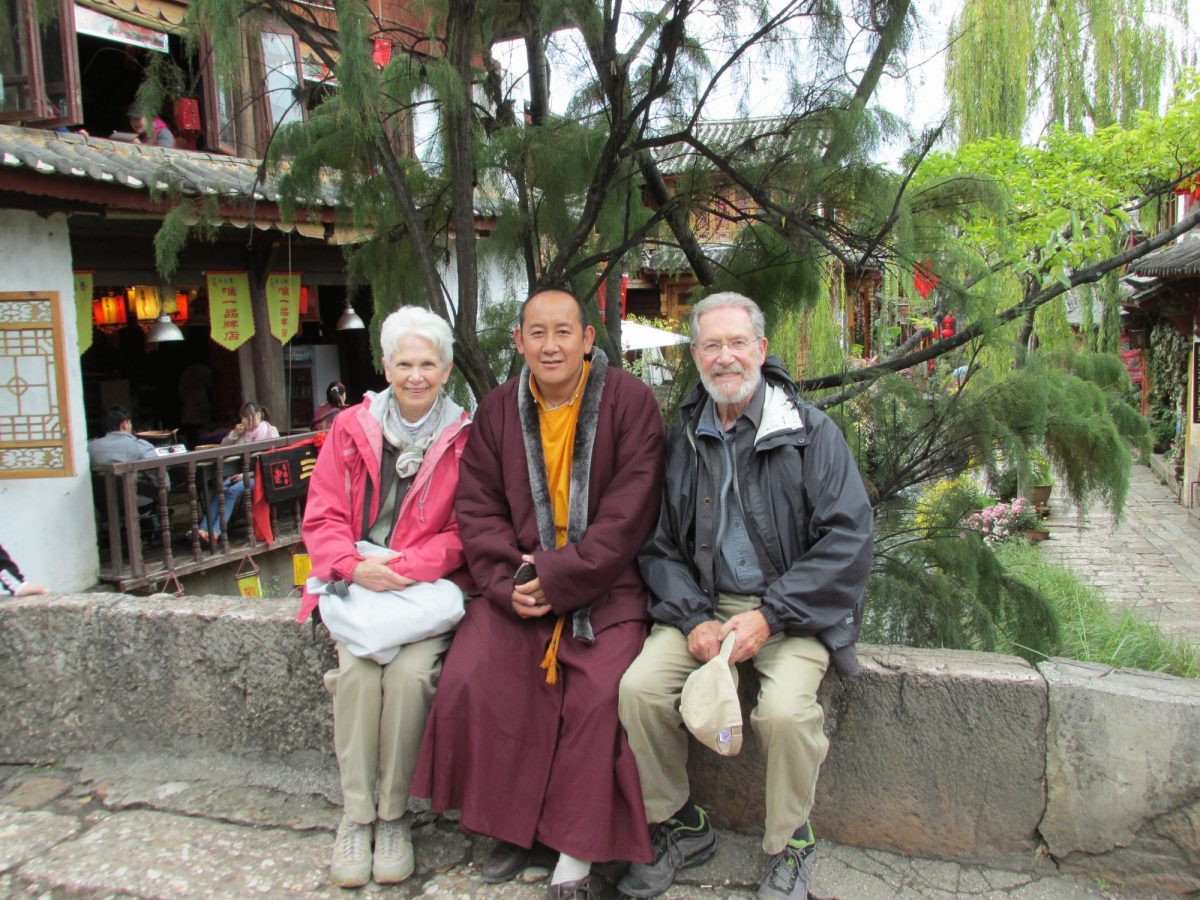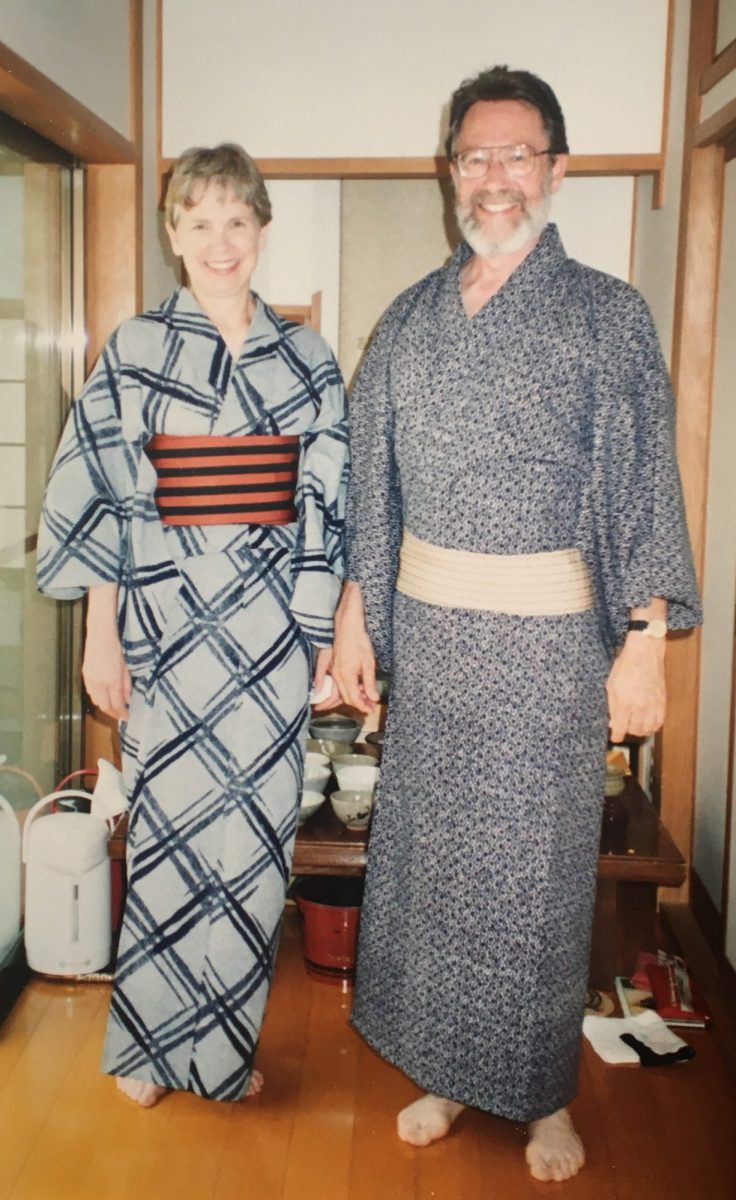
Jim Boyd and Sue Ellen Markey (formerly Charlton) embody the term “global citizen.” Having lived, worked, and studied in countries from Switzerland to India, Japan to Iran, these two emeriti faculty members not only embrace but actively advocate entering another worldview.
“It’s exhilarating,” says Boyd, “to enter another worldview and see what life looks like in that context.”
In 1962, Boyd went to India as a Fulbright scholar and a student of world philosophies and religions to study Hinduism and Buddhism. In addition to “casually” attending classes, Boyd met teachers, studied sitar, and wandered India. “It changed my life – shook my foundations and my perspective. It was the most radically different from anything in the west or east I had encountered.”
During her junior year at Lewis and Clark College in the early 1960s, Markey did a study abroad trip in Geneva, Switzerland with Smith College. She lived with a family, the patriarch of whom had worked for the League of Nations. “He gave me a lecture about where the U.S. dropped bombs on the way to Germany during WWII,” says Markey. She worked on her French and found almost as much culture shock living with other college women from the northeastern U.S. (having always lived on the West Coast) as she did with the Swiss.

Because of the transformational experience that both of them had during their collegiate years, they recently established the James W. Boyd, Sr. and Sue Ellen Markey (Charlton) Education Abroad Scholarship in the Office of International Programs. At times, students have difficulty meeting some of the ancillary expenses related to going abroad (airfare, vaccinations, obtaining a passport, etc.) that are beyond tuition. This scholarship will help students with those costs.
Additionally, Boyd and Markey hope to make the university more competitive in recruiting and retaining students in the long term with this scholarship. “We would love to see students more competitive for Fulbright awards, as well as Marshall, Rhodes, and others,” says Markey.
Both of these scholars and travelers have had an impact on CSU as an institution. Boyd was a University Distinguished Teaching Scholar, a faculty member in the philosophy department, and a six-time Fulbright award recipient, with four of the awards for group study in India. Markey taught more than 40 years in the political science department, served as chair of the department, and chaired Faculty Council.
“We’ve watched the university change a lot and we’ve tried to contribute to building an institution where we felt comfortable and our colleagues and students could feel comfortable,” says Markey. “We pushed to make it more international and more responsive to women’s issues. We helped start the Asian Studies program (with Loren Crabtree), which evolved into the International Studies program.”
Through their own faculty led study abroad programs to India, Japan, and Wales, teaching with Semester at Sea, and other travel, they’ve seen the power (and struggle) of students’ experiences in another culture. Their advice for students, or anyone, who is traveling: be flexible and bring a sense of humor.
“It’s critical [to be flexible] in terms of what comes your way. There’s a euphoria for the first 4-6 weeks in being there. Then you begin to want something familiar, especially your own language and food. There’s a real slump,” says Boyd. “Then that slump levels off – and you begin to really see the culture. We try to forewarn the students about that.”
“The people we know who do the best are often those who can laugh – especially at themselves.”
These days, Boyd and Markey continue to travel and stay engaged with teaching and learning. Markey has finished the fourth edition of her book on Asian politics and taught two Osher courses. Boyd has taught four Osher courses, enrolled in an Osher course on writing, and upon request from his children, written four memoirs with poems and short prose to match the photographs of his travels.
In addition to this education abroad scholarship, Boyd and Markey have donated to a variety of scholarships and programs, including the University Center for the Arts and the performing arts. “We’ve seen the impact of having a building, for example, and what that’s done to draw in community. It’s a real town-gown center; a special thing CSU can offer to the community,” says Boyd.
Navigating Borders
From water to dance, science to film, clay to gender, the liberal arts helps us navigate the borders in our lives that are physical, metaphorical, or cultural.
